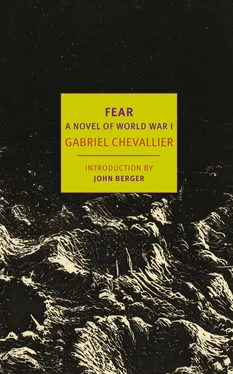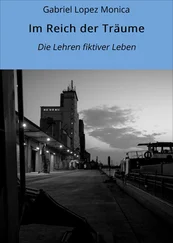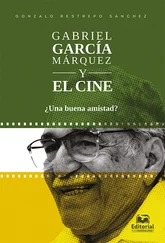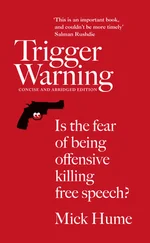Back at the base our initial training was complete and we had been made privates first class (the selection of corporals would only be made at the front) and each given a squad. In my case this meant commanding twenty-five men. I never managed to get interested in this command, in checking the shine on rifle sights or whether buttons were correctly fastened or packs kept neat and tidy, in other words in harassing other men to demonstrate their dependency and my superiority, imposing on them what in their place I would have hated myself. It requires a certain level of mediocrity to develop a taste for such things and those above me, who had that taste, quickly saw that I was not one of them. They took their revenge by putting me down for the first train to the front. I could perceive a threat in their attitude which I did not understand until later. At the time I just laughed at this ominous choice and saw in it a contradiction (which should have enlightened me) with army doctrine: if honour is to be found in perilous situations then why send me off before more meritorious candidates? But I had already decided to go to the front. The sooner the better, and I was getting tired of being stuck at the rear, where conditions were gradually reverting to the usual rigours of barracks life.
Our departure was very jolly. We had been issued with fresh kit and horizon-blue uniforms in a new design in which we pranced around like dandies. We had forty-eight hours to strut through town and read in the eyes of passing women the tender interest that our youth and daring merited. We were rather proud of ourselves.
I took my leave of someone who had shown me all the kindness and indulgence of an older sister, based on experience of men’s ingratitude and the fact that one should not expect too much from them. Knowing that she was only a staging-post in my life, I had not questioned her about her past (which I suspected was quite murky) and, in two months, had known nothing about her beyond her first name, which was indispensable for conversation. In other words, my strength was unimpeded, destined for other goals, and I was not enfeebled by all those silly emotions that can weaken a virile heart. I separated from this convenient woman resolutely, with no regrets or wish to return. I believe I would have refused to devote a week to her, that I would have even have sacrificed the vanity of feeling myself loved to my desire to visit a battlefield, to finally know what was going on there. I still imagined the war in terms of sightseeing.
Ten months after the first to go, we set off for the front in good cheer, and the local people, who were getting rather used to all this by now, still gave us an honourable send-off because, after all, we were scarcely nineteen years old.
THE ENCHANTED CIRCLE, when at last we reached it, was a disappointment. When the train set us down in the middle of the countryside, we had to begin a long march in the rain, during which our beautiful new kit, our full packs, our bandoliers and our tools all weighed heavily. At nightfall we reached a rather grand country house, its terrace crowded with strutting officers. But we had to erect our tents on the spongy lawns under trees dripping with rainwater. This exercise, which we carried out clumsily, took a great deal of time and it was dark by the time we finished. Then, already soaked, we had to sleep in this swamp.
The next day we were ordered to join a march battalion. Battalions like this provided reserves of men which were moved up parallel to the front line so that they could be brought in to places that were under attack and provide immediate reinforcements. These battalions also acted as front-line depots into which were poured those who passed through the first-aid posts: the sick, the walking wounded. These wounded men, veterans, could be recognised by their washed-out uniforms, their faked submissiveness and their anxious demeanour. The NCOs treated them better.
I managed to get myself into the same squad as my friend Bertrand, with whom I had been through initial training and who was, like me, a private first class. But we very soon realised that this single stripe had no value here, that it only attracted ridicule, and we decided to get rid of it, with a quick slash of the knife. Not quickly enough, though, to stop our corporal noticing and taking umbrage. No doubt he saw in this stripe the start of an ambition that threatened his power. We had been marked out, and these two unfortunate privates first class, even self-demoted, became the unhappy objects of his ill-temper and abuse. I should say that I was his main target. Betrand had a rather gentle character and a mild face to match his mild emotions. My own face, on the contrary, by the disgust which it clearly revealed, was a constant challenge to our superior. One can only describe this NCO, whose name I have forgotten, as a thug. His repulsive appearance made it all too clear: a big red face, square head, thick neck, powerful but ugly chest, thin legs with knock knees, club feet, huge fists, something base in his expression, and the voice of a drunken navvy. He ordered us around with revolting coarseness and constantly boasted of his courage. Later we had proof that this was an empty boast.
In the army it is always easy to find fault with people and persecute them. Especially easy in my case, since, out of training as I was, fatigue overwhelmed me to the point where I failed to look after my weapons or the fine details of my uniform. I was, in particular, very bad at marching. Our torturer was aware of this, and never failed to force me to carry an extra load whenever we were on the move. He made me add to my pack a dixie containing food for the whole squad. These few, awkwardly balanced, kilos were pure torture for me. I soon decided to head for the latrines after the second break in the march. Lying flat on my back I let the column set off without me and then waited for one of the convoys that rumbled along the roads. Hopping from one vehicle to another I made it to my destination quite comfortably. But at one point my pack, falling from an artillery truck on which I was hanging, slipped beneath the wheels. The dixie was flattened and that evening the squad had nothing to eat. That was the last time I was ordered to carry food.
Digging latrines, sweeping out the camp, stuffing straw mattresses — these tasks left us no time to rest. To them we brought a cheerful nonchalance and unfailing incompetence. Our good humour was sustained by the thought that there was nothing else to do here in the countryside and so we might as well pass the time together, straining to botch a job or make it last forever, and pretend we enjoyed it. In the end it stopped us being bored. When we were ordered out on fatigues, we got in the habit of declaiming a line from Cicero: ‘Quid abutere, Catilina, patienta nostra?’[11] ‘What was that you said?’ shouted our little boss, the first time he heard these words, suspecting rebellion. ‘It is not my duty to teach you Latin, corporal,’ I replied very sweetly.
In the end, my patience ran out. I can still picture the exact spot. On a bare plateau beneath a fierce June sun, our squad was exercising under the orders of Catiline (the name had stuck). With no other motive than hatred, he let my comrades take a break, leaving me alone to repeat the exhausting movements of bayonet drill; point! thrust!… A man’s strength has its limits, of which he took no account, and this test was a kind of duel which I would necessarily lose. I knew that when I could no longer move my arms he was quite capable of provoking me into disobeying an order. More than anything, the sight of his hideous face was driving me mad. I suddenly strode up to him, with my fixed bayonet, only stopping when the point was touching his chest. ‘I’m going to k…!’ I snarled. I don’t know if I would have killed him. But, seeing the look on my face, he didn’t doubt it. He went very pale and didn’t say another word. The whole, trembling squad knew he was beaten.
Читать дальше












